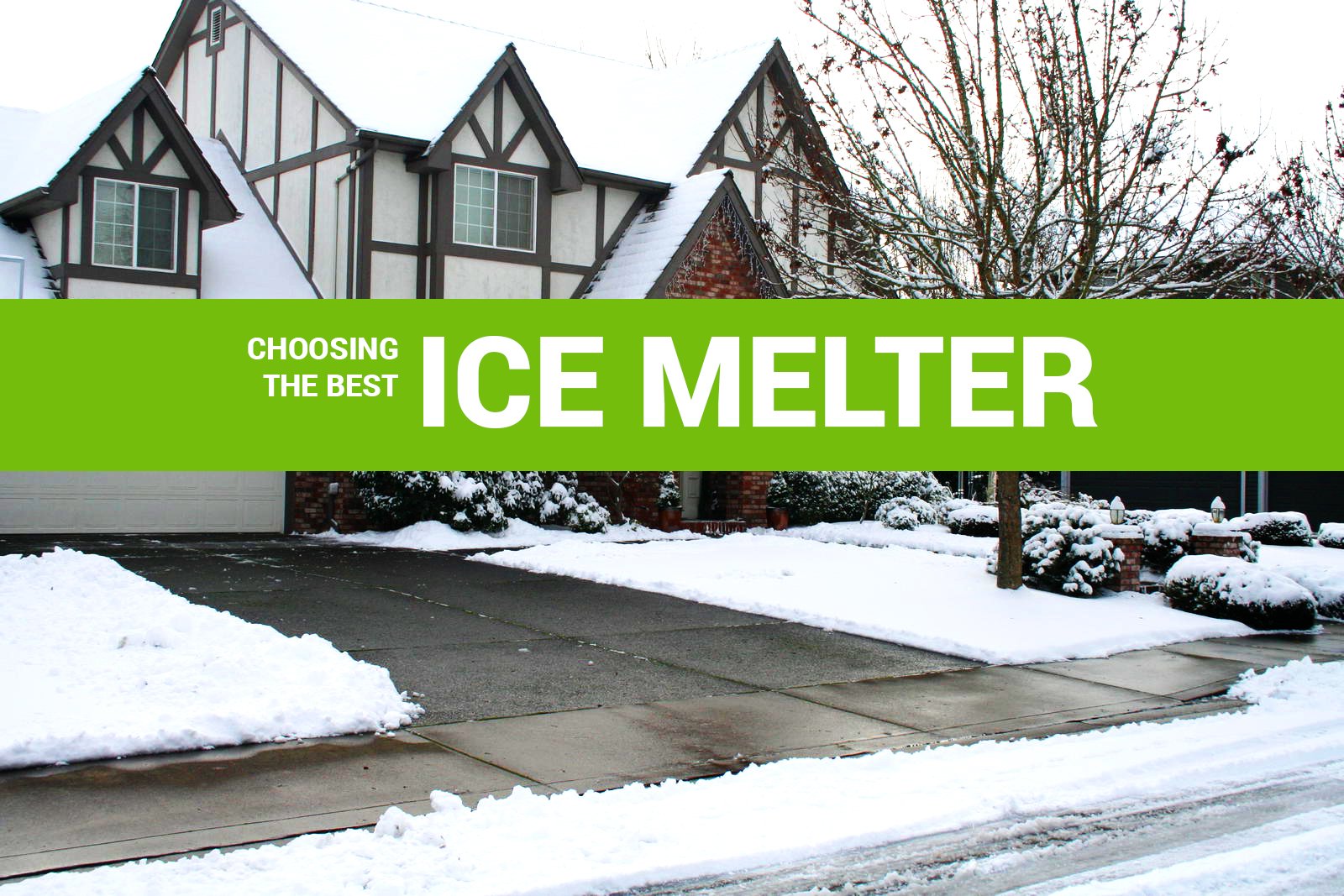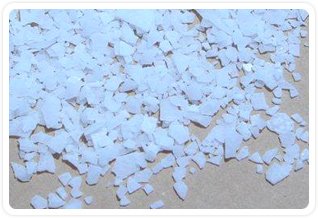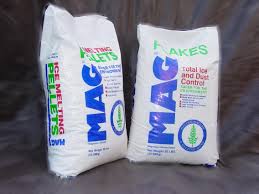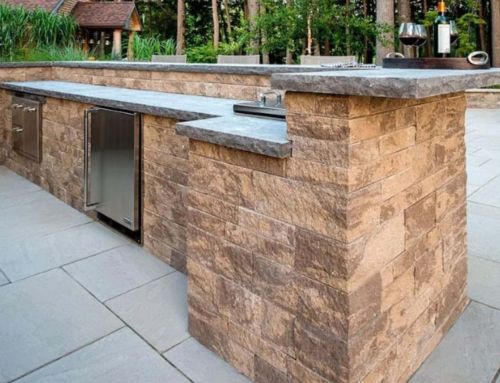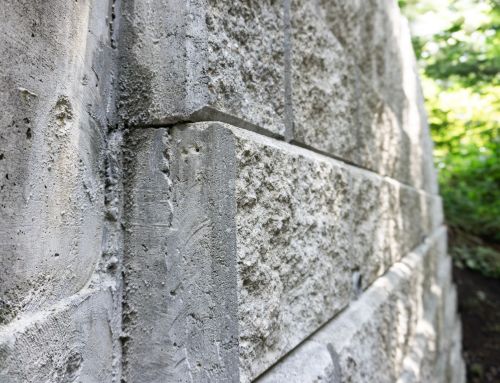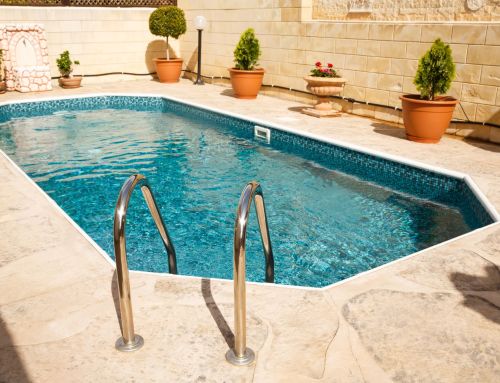The Difference Between Ice Melt And Rock Salt
During winter, perhaps no product is more valuable than ice melt or rock salt. People stock up on bulk winter products just to make sure their driveways and walkways are hazardless. At our landscape supply store in Norton, Massachusetts, we have a huge variety of rock salts and ice melts. But sometimes variety can be confusing. Which works best? What’s the difference between sodium chloride and calcium chloride? Are these ice melts safe for pets?
Don’t worry! Today, we’re going to discuss the difference between some common snow melt products so you’ll know exactly what you want when you come into our landscaping supply store. And if you still have questions, give us a call! Sometimes talking to a real person can offer more peace of mind than scouring the internet.
What’s The Difference?
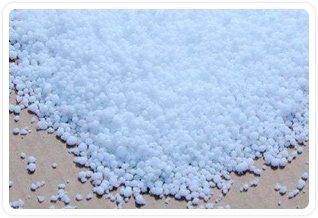 The technical difference between these two products is in the chemicals that make them up. Rock salt, also commonly called halite, is simply sodium chloride – the same chemical compound that makes up table salt. Ice melt, on the other hand, is most often a blend of calcium chloride, sodium chloride, magnesium chloride, and other elements.
The technical difference between these two products is in the chemicals that make them up. Rock salt, also commonly called halite, is simply sodium chloride – the same chemical compound that makes up table salt. Ice melt, on the other hand, is most often a blend of calcium chloride, sodium chloride, magnesium chloride, and other elements.
How Do De-Icers Work?
When they spread over an icy patch, it penetrates the surface of that ice and forms a salt and water solution, also called brine. Brine has a lower freezing point than water, so it will slowly help to melt the ice underneath, creating more brine and working more quickly as time goes on. How low that freezing point is will depend on whether which one you are using. Ice melt can drop the freezing point drastically, while rock salt will only drop it a few degrees.
Are these Products Safe For Dogs?
Even though it may seem to have more chemicals than rock salt, ice melt products are generally considered safer for pets than rock salt, though none are guaranteed to be safe if ingested. If small amounts are ingested, your pet might experience some intestinal discomfort. However, if large amounts are ingested, the product can cause an imbalance of electrolytes and result in lethargy and even seizures or death. While it’s not good if your dog eats rock salt, the biggest problem with pets isn’t what gets in their stomach, but what gets on their paws. Rock salt is very drying, and the grainy salt crystals can be irritating to your dog’s paws leaving them cracked and dry.
While you can use pet-safe ice melt on your own property, you can’t control what your neighbors use. If you’re one who takes your dog out for a long walk every day, you may want to consider getting a pair of pet booties or looking up home remedies to keep their paws safe from ice melting products – and protect their stomachs when they inevitably lick their paws after a walk.
Prioritizing Safety for People and Pets with MAG®
When it comes to the safety of your loved ones, including children and pets, peace of mind is paramount. MAG® offers a solution that can put your worries to rest. With its remarkably low toxicity—nearly three times less toxic than common table salt and eight times less toxic than calcium chloride—MAG® stands out as a safer choice for residential and workplace use.
Unlike certain ice-melters that can pose risks to the skin, MAG® is gentle in its application. This means you can confidently use it even in areas frequented by your furry friends. Winter weather won’t keep dogs or cats indoors, but with MAG®, there’s less concern when they inevitably lick their paws after a walk. In fact, MAG® is so safe that it’s used in some farm feed stocks as a mineral supplement, highlighting its commitment to both safety and functionality.
If you are interested in using other pet-friendly ice melt on your property, try Pet-Guard® Ice and Snow Melter or Sno-Paws® Ice Melt.
If they Both Melt Ice and snow, How Do I Know Which To Choose?
Just as with most good things in life, there is always a ‘but.’ We’ve compiled some good things about ice melt and rock salt below, along with the ‘but’ that you should consider.
- Rock salt is only effective down to 25 degrees
- BUT rock salt usually contains a gravely material that will still help provide traction on ice
- Ice melt is effective down to -15 degrees, and some products will melt ice at -25 degrees
- BUT ice melt is more expensive than rock salt
- Rock salt is more economical per pound
- BUT you need more rock salt to accomplish what less ice melt will
- Ice melt may be safer for pets and children than rock salt
- BUT a smiling kid or a cute puppy on a bag of ice melt doesn’t guarantee it is safe
Our Landscape Supply Store Carries All The Major Ice Melt And Rock Salt Brands In Bulk
To make sure you have all the ice melting products you need to get through winter, be sure to stop by our landscape supply store in Norton, Massachusetts! And as always, we’d love to hear from you if you have any questions. Don’t hesitate to give us a call at (508) 622-1698!


